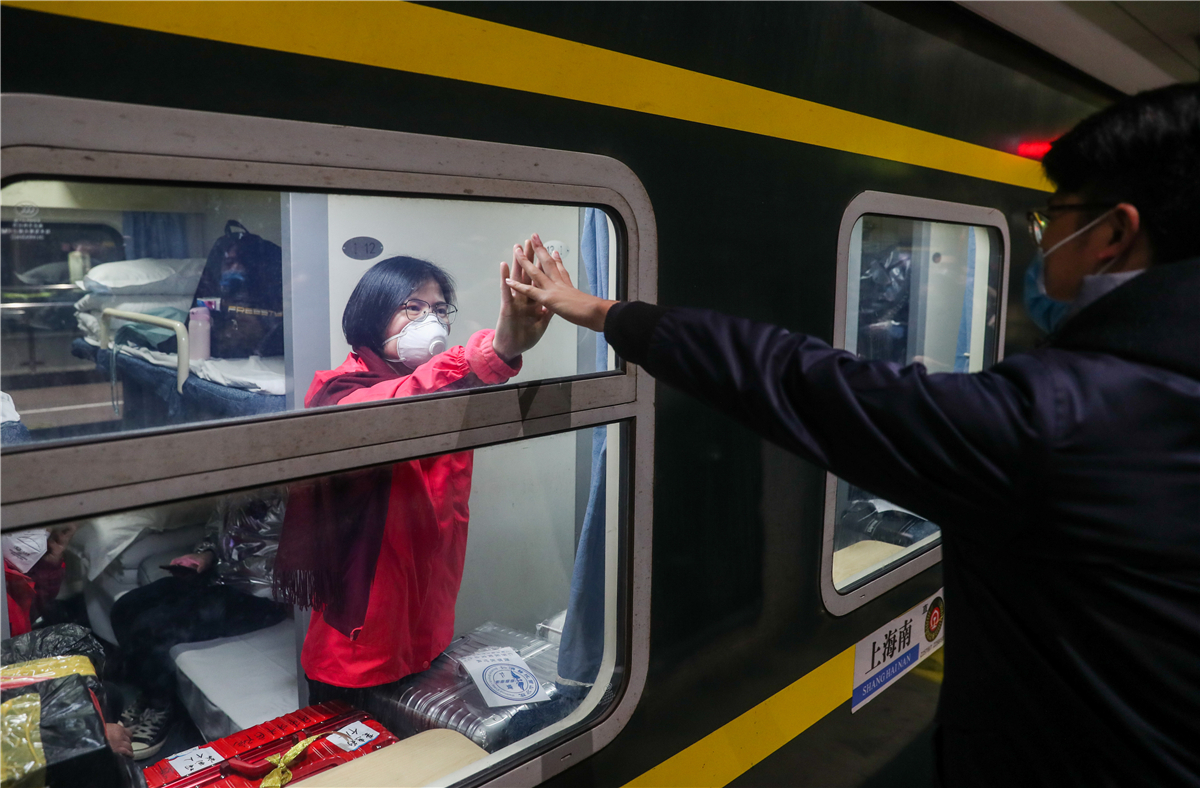How women won the war of the wards


Multiple roles
A video clip circulated online showed a tearful husband, Jiang Haojun, seeing off his wife Zhao Yingming, a nurse from a hospital in Guangyuan, Sichuan province, to Wuhan on Jan 28.
As the chartered bus slowly drove away, Jiang shouted that he would do the housework for a year if she made it back safe and sound.
Zhao returned home in March, and was amused to find that Jiang had bought a cleaning robot.
The clip was shared widely and got hundreds of thousands of comments and likes on Weibo.
Though celebrated by many as a "happy ending" for the couple, the clip highlighted the dual burdens Chinese women have to shoulder at home and in the workplace.
According to a report last year by the National Bureau of Statistics, Chinese women on average spend more than two hours a day on housework, compared with just 45 minutes for their male partners. The research found that men work longer hours, seven hours and 52 minutes a day, but that was only 28 minutes more than working women.
Some women were sent to the front line together with their husbands, leaving behind young children in the care of their aging parents.
The situation prompted the Ministry of Civil Affairs, which oversees child and senior welfare services, to release circulars in February asking neighborhood authorities to step up care for vulnerable groups left at home.
The All-China Women's Federation launched a program to deliver food and vegetables to the homes of front-line workers. Stranded at home due to the outbreak, college students in the Guangxi Zhuang autonomous region and Henan province volunteered to tutor the absent parents' children as a way of showing their respect and gratitude.
Yu Yanhong, a member of the National Health Commission Party Leadership Group and Party secretary of the National Administration of Traditional Chinese Medicine, said women demonstrated tremendous courage and altruism in virus-ravaged Wuhan.
























